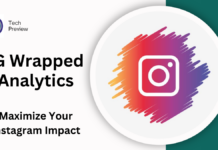Social media marketing leverages online applications to share, promote and discuss information. It encompasses blogs, micro-blogs, wikis, forums, social bookmarks and social networking Web sites like LinkedIn, Plaxo, MySpace and Facebook.
Businesses can use social media applications to drive Web site traffic, generate buzz about products or services and increase brand awareness. The most popular applications are also free, which can be a great benefit to small business owners with tight marketing budgets.
While social media outreach may be inexpensive, it does require a consistent, long-term commitment. Prior to incorporating social media into a marketing plan, small business owners should research How to Start a Social Media Campaign. Then, they need to select the appropriate applications to align with their company goals and mission.
Blogs, Twitter, Facebook Fan Pages and LinkedIn represent some of the most successful and popular social media tools for small businesses.
Create a Blog to Educate an Online Network and Develop a Public Expertise
The term blog originated from “web log.” It’s a site that an individual or company can use to share information or multimedia. Blog posts are typically written in the first person, and categorized by date and subject matter.
Blogs allow small businesses to educate an online network and develop a distinct voice and expertise in the public eye. When optimized for search engines and promoted through other social media channels, they can also help drive traffic to a company Web site. Check out Tips for Blog Topics to discover numerous ways to add value to a target audience through blogging.
Use Twitter to Increase Brand Awareness
Twitter is a micro-blogging service in which individuals can communicate publicly in 140 characters or less. These “tweets” are sent to a network of followers and can also be seen by anyone who visits the individual’s profile page.
Founded in 2006, Twitter became the fastest-growing online member community in 2009. Between February 2008 and February 2009, visits to the Twitter site increased 1,382 percent from 475,000 unique visitors to 7 million, according Nielsen Online. Its mass popularity was partially spurred from the 2009 presidential election, as both candidates used the service to communicate with hundreds of thousands of followers. Twitter has also been heavily promoted as a communication tool through traditional news outlets such as CNN.
Businesses can use Twitter to increase brand awareness and promote their products and services. Blatant sales pitches don’t work well with this application. Followers tend to be more receptive to the spread of informative links, educational tools and assistance answering “tweeted” questions. There are numerous Twitter applications that help users manage the flow of information and target a specific audience. To learn more, visit Twitter Apps for Businesses.
Promote Companies Online for Free with Facebook Fan Pages
Facebook is one of the world’s most popular social networking sites. According to the Facebook Press Room, there were more than 250 million active users in September 2009, and the average user is connected to 120 friends on the site.
Facebook is best known for its personal profiles, but Facebook Fan Pages are also gaining dominance as business profiles. The platform allows companies can share news through brief wall posts, event posts, photos and videos. Fans can also comment on the fan page wall, providing a testimonial of sorts. Many businesses have found success by offering special deals to their Facebook fans. Businesses can also enhance customer service by answering fan questions on the wall.
Facebook offers its fan page administrators opportunities to promote their pages through ads, Fan Box’s and page badges. The latter two options can be posted on a company site or blog to help grow the Facebook fan network.
Use LinkedIn to Find New Employees and Expand Professional Networks
LinkedIn in a popular social networking site geared toward professionals. Registered users develop a list of contacts they know and trust. They’re referred to as connections.
Users can post resume-related information in a public profile and receive recommendations from business partners, clients and fellow employees. It has become an effective way for small business owners to find capable, fitting employees, identify business opportunities and expand their professional networks.
Users can interact with and engage connections through LinkedIn Answers (allows users to pose questions to a community of professionals), LinkedIn Groups (alumni, industry and professional networks) and LinkedIn Polls.
Social media tools for small businesses can be used as inexpensive communication and marketing solutions. When researched and targeted, a social media campaign is an effective way to promote brands, products and services. Users need to fully commit to the campaign and focus on adding educational and informational value to their networks.









